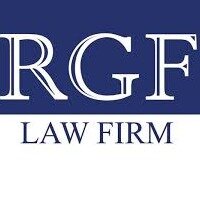Best Real Estate Contracts and Negotiations Lawyers in Puerto Rico
Share your needs with us, get contacted by law firms.
Free. Takes 2 min.
Free Guide to Hiring a Real Estate Lawyer
Or refine your search by selecting a city:
List of the best lawyers in Puerto Rico
About Real Estate Contracts and Negotiations in Puerto Rico
Real estate contracts and negotiations involve the legal processes surrounding the sale, purchase, lease, and management of properties. In Puerto Rico, these activities are governed by specific local laws and regulations that ensure fair practices and protect the rights of parties involved. Whether you are a buyer, seller, landlord, or tenant, understanding these regulations is crucial to navigate real estate transactions successfully.
Law in Puerto Rico: A Brief Overview of Real Estate Contracts and Negotiations
The legal framework for real estate in Puerto Rico is influenced by both local laws and the civil code of Spain, given the island's historical ties. Puerto Rico requires that all real estate contracts be in writing to be enforceable. The notarization of contracts is also a common practice to ensure their validity. Local laws further regulate land use, property taxes, zoning, and construction, all of which play a role in real estate transactions and negotiations.
Why You May Need a Lawyer
There are several scenarios where hiring a lawyer in real estate contracts and negotiations might be necessary:
- Buying or selling property to ensure terms are clear and fair.
- Negotiating leases to understand obligations and rights.
- Resolving disputes over property lines or titles.
- Handling complex transactions involving multiple parties or large sums of money.
- Dealing with foreclosures to explore legal options available.
- Complying with local real estate regulations and zoning laws.
- Understanding tax implications for real estate transactions.
Local Laws Overview
Key aspects of real estate law in Puerto Rico include the following:
- Property Registry: Transactions must be recorded in the Property Registry to be enforceable against third parties.
- Notarization: Most real estate transactions require notarization to ensure the authenticity of the documents.
- Community Property Rules: Inherited from civil law, these rules affect property division after marriage dissolution.
- Zoning Laws: Govern the use of land and construction standards, affecting development and property use.
- Contracts Law: Local law mandates that real estate agreements be clear, mutual, and adhere to statutory requirements.
Frequently Asked Questions
What must a real estate contract include in Puerto Rico?
All real estate contracts must include a clear description of the property, the price, payment terms, and signatures of the parties involved. Notarization of the contract is also recommended.
Is it necessary to hire a real estate attorney for every transaction?
While not legally required, hiring an attorney is advisable to ensure that transactions comply with local laws and to protect your interests.
What is the role of a notary in real estate transactions?
A notary in Puerto Rico verifies the authenticity of the contract, ensures it conforms to legal standards, and may assist with the registration of the transaction.
How are property disputes resolved?
Property disputes can be resolved through negotiation, mediation, or litigation. A lawyer can advise on the best method and represent your interests.
What taxes apply to real estate transactions?
Buyers and sellers may be responsible for different taxes, including capital gains tax, stamp duty, and property taxes, depending on the transaction specifics.
Can foreigners buy real estate in Puerto Rico?
Yes, foreigners are permitted to purchase property in Puerto Rico. The process is similar to that for local buyers.
What happens in case of a breach of contract?
If a party breaches a contract, they may face legal action for damages or be required to fulfill the contract terms. Legal guidance is essential in such cases.
Are there standard forms for real estate transactions?
While standard forms exist, they may not cover all specific needs or legal nuances of a transaction in Puerto Rico, hence the importance of legal advice.
What is the importance of zoning laws?
Zoning laws dictate how property can be used and developed. Violating them can result in legal penalties or require costly corrections.
How can I verify a property's title?
Title verification involves a thorough review of public records. Lawyers or title companies typically conduct this to ensure clear title transfers.
Additional Resources
- Office of the Property Registry of Puerto Rico
- Puerto Rico Land Administration
- Puerto Rico Bar Association
- Local real estate agencies and legal firms specializing in real estate law
Next Steps
If you require legal assistance in real estate contracts and negotiations, consider consulting with a lawyer specializing in Puerto Rico real estate law. Verify their qualifications and experience in dealing with local real estate issues. You can also reach out to the Puerto Rico Bar Association for referrals or recommendations. Engaging early with legal professionals can prevent complications and ensure your interests are effectively represented.
Lawzana helps you find the best lawyers and law firms in Puerto Rico through a curated and pre-screened list of qualified legal professionals. Our platform offers rankings and detailed profiles of attorneys and law firms, allowing you to compare based on practice areas, including Real Estate Contracts and Negotiations, experience, and client feedback.
Each profile includes a description of the firm's areas of practice, client reviews, team members and partners, year of establishment, spoken languages, office locations, contact information, social media presence, and any published articles or resources. Most firms on our platform speak English and are experienced in both local and international legal matters.
Get a quote from top-rated law firms in Puerto Rico — quickly, securely, and without unnecessary hassle.
Disclaimer:
The information provided on this page is for general informational purposes only and does not constitute legal advice. While we strive to ensure the accuracy and relevance of the content, legal information may change over time, and interpretations of the law can vary. You should always consult with a qualified legal professional for advice specific to your situation.
We disclaim all liability for actions taken or not taken based on the content of this page. If you believe any information is incorrect or outdated, please contact us, and we will review and update it where appropriate.
Browse real estate contracts and negotiations law firms by city in Puerto Rico
Refine your search by selecting a city.










